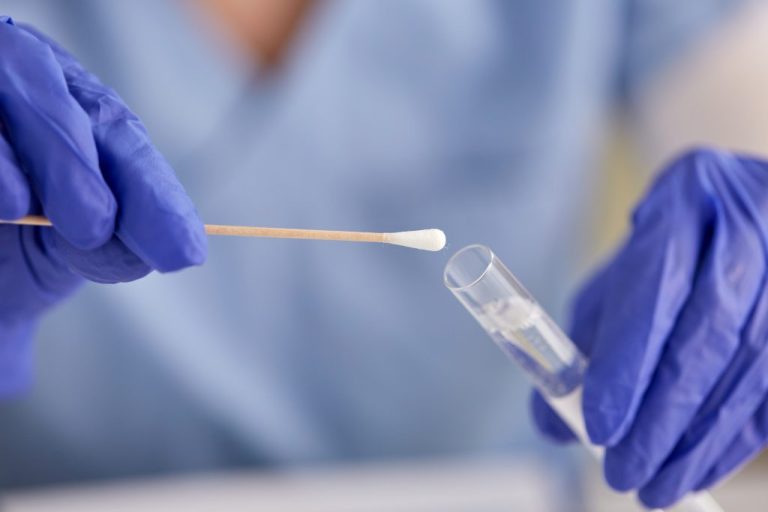A major overhaul to the NHS cervical screening programme in England will allow people to test themselves at home if they face barriers attending appointments.
The government has announced that self-sampling kits to test for human papillomavirus (HPV), a sexually transmitted infection that causes around 99% of cervical cancers, will be available to women and other people with a cervix who have missed previous screening invitations.
“They offer a more accessible and convenient way for women to participate in screening”
David Fothergill
The move – part of the government’s upcoming 10 Year Health Plan – will see kits sent out to people who have either never, or rarely, attended a screening in their life.
The kits can be returned for free in discreet packaging and anyone who gets a positive result will then encouraged to attend a follow-up cervical screening test.
The change comes as part of a drive to increase cervical cancer screening rates, which in England are currently at 68.8%, below the NHS target of 80%.
NHS England has a goal of eradicating cervical cancer by 2040, with the majority of cervical screenings in clinics undertaken by nurses.
Wes Streeting, health and social care secretary, said he hoped the kits would “put women firmly in control of their own health”.
“Our 10 Year Health Plan will fundamentally reform the NHS, shifting focus from treating illness to preventing it before it starts.
“We know the earlier cancer is diagnosed the better the chances are of survival. By making screening more convenient, we’re tackling the barriers that keep millions of women from potentially life-saving tests.”
NHS England director of screening Michelle Kane, similarly, said she hoped it would boost cervical screening numbers.
She said younger women, minority ethnic people, those with disabilities and LGBTQ+ people would particularly benefit.
“There are a number of reasons that stop some women taking up the offer of screening and we hope the introduction of self-testing will encourage more women to take up this life-saving test in a way that works for them,” Ms Kane said.
“Anyone testing positive for HPV through self-sampling will be encouraged to attend a clinician-taken follow-up cervical screening test to check for cervical cell changes.”
David Fothergill, chairman of the Local Government Association’s Community Wellbeing Board, welcomed the move.
Mr Fothergill’s organisation represents local councils, which provide funding for sexual health clinics.
“Self-sampling HPV kits are a game-changer in cervical cancer screening because they offer a more accessible and convenient way for women to participate in screening, potentially leading to increased participation and earlier detection of cancer,” he said.

